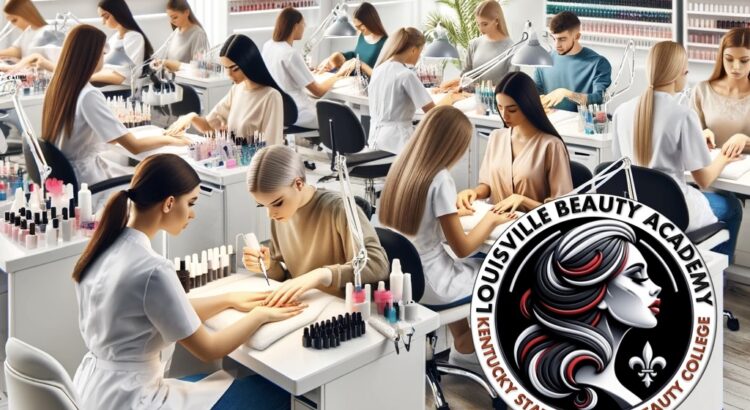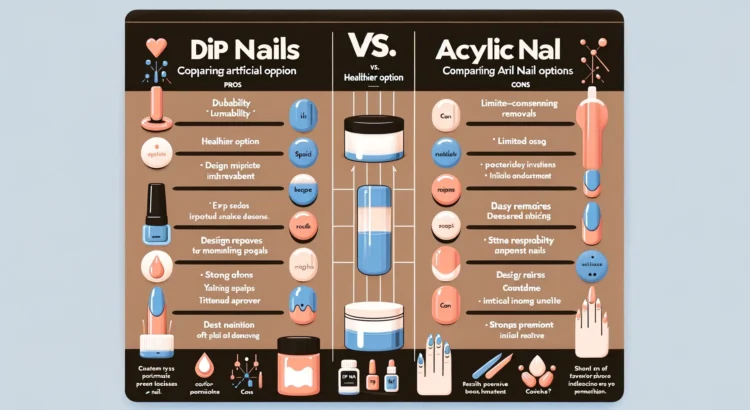Louisville Beauty Academy, a Kentucky State-Licensed and State-Accredited Beauty College with two campuses, is renowned for its comprehensive Nail Technology program. This program is designed to equip students with the knowledge and skills necessary to excel in the rapidly evolving nail industry, adhering to the rigorous standards set by Kentucky state regulations.
Nail Technician Curriculum: A Journey of Precision and Creativity
The Nail Technology curriculum at Louisville Beauty Academy is structured to provide a holistic education, covering a wide range of topics essential for a successful career in nail care.
1. Basics:
- History and Opportunities: Exploring the evolution of nail care and the diverse career paths available.
- Life Skills: Developing personal and professional growth strategies.
- Professional Image: Cultivating a polished and professional appearance.
- Communications: Enhancing interpersonal and client communication skills.
2. General Sciences:
- Infection Control: Principles and Practices: Emphasizing the importance of hygiene and safety in nail services.
- General Anatomy and Physiology: Understanding the human body’s structure and functions.
- Skin Structure and Growth: Learning about the skin’s anatomy and its relevance to nail care.
- Nail Structure and Growth: Studying the anatomy of nails and their growth patterns.
- Nail Diseases and Disorders: Identifying and understanding common nail conditions.
- Basics of Chemistry: Exploring the chemical composition of nail care products.
- Nail Product Chemistry: Understanding the properties and usage of nail products.
- Basics of Electricity: Learning about the use of electrical devices in nail services.
3. Nail Care:
- Manicuring: Mastering the techniques of basic and advanced manicures.
- Pedicuring: Learning the art of pedicure services for foot care.
- Electric Filing: Utilizing electric filing equipment for efficient nail shaping.
- Nail Tips and Wraps: Applying and maintaining nail enhancements.
- Monomer Liquid and Polymer Powder Nail Enhancements: Creating durable and aesthetic acrylic nails.
- UV and LED Gels: Working with gel systems for nail enhancements.
- Creative Touch: Exploring nail art and design techniques for personalized services.
4. Business Skills:
- Seeking Employment: Navigating the job market and securing employment in the nail industry.
- On the Job Professionalism: Maintaining professionalism and ethical standards in the workplace.
- Salon Businesses: Understanding the business aspects of running a nail salon or spa.
Nail Technology Hours Required: To ensure comprehensive training, nail technician students at Louisville Beauty Academy are required to complete no less than 450 hours in clinical and theory classwork, with a minimum of:
- 150 lecture hours for science and theory.
- 25 hours on the subject of applicable Kentucky statutes and administrative regulations.
- 275 clinic and practice hours.
Students must complete 60 hours before providing services to the general public, with clinical practice performed on other students or mannequins during the first 60 hours.
Why Choose Louisville Beauty Academy?
Choosing Louisville Beauty Academy means embarking on a journey of precision, creativity, and professional development. With experienced instructors, modern facilities, and a curriculum that is constantly updated to reflect industry advancements, students are well-equipped to excel in the nail industry. Graduates of the academy are not just licensed professionals; they are skilled artisans, ready to bring beauty and confidence to their clients’ fingertips.
Join Louisville Beauty Academy and unlock the door to a rewarding career in nail technology, where artistry meets professionalism in the vibrant world of nail care.






